








Dear Roseman University Community,
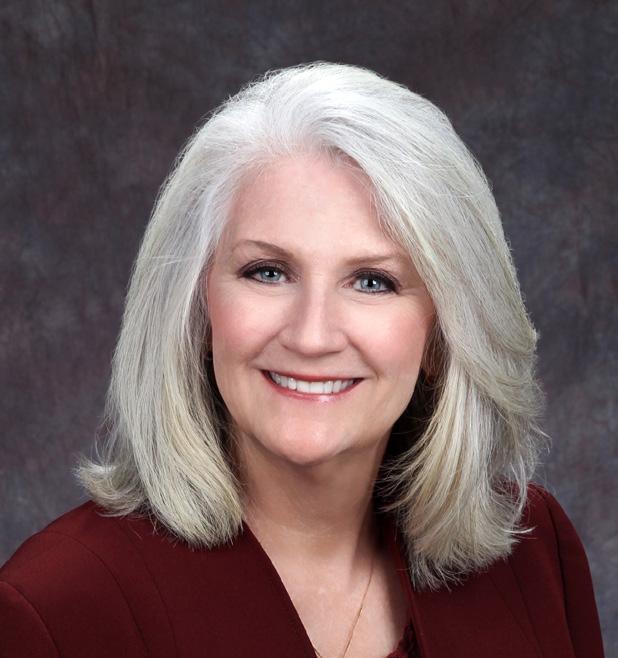
As we embrace the summer of 2025, I am delighted to share this latest issue of spectRUm, showcasing the remarkable achievements and inspiring stories that embody our institution's commitment to excellence in health sciences education.
This issue highlights the extraordinary journey of two longtime friends who have illuminated the practice of pediatric pharmacy. Their story demonstrates how Roseman's accelerated PharmD program provides students with diverse experiences that help them discover their professional passions. The dedication of these professionals to serving our most vulnerable patients—our children—exemplifies the compassionate care we strive to instill in all Roseman graduates.
I am particularly excited about our feature on the revolutionary GENESIS program in our College of Medicine. This innovative approach to medical education, which immerses students directly in underserved communities, represents a fundamental shift in how we train future physicians. By addressing social determinants of health and building trust through community partnerships, GENESIS is creating physicians who understand healthcare from a holistic perspective. Another College of Medicine program, EMPOWERED, has also expanded its footprint beyond Nevada and into Utah thanks to a partnership with Intermountain Health. I invite you to learn more about both of these programs and how they are transforming our communities.
The power of our Master of Science in Biomedical Sciences program is also beautifully illustrated in these pages. With a 98 percent graduation rate and 75 percent overall academic placement in graduate-level health sciences programs, our MBS degree opens doors to countless opportunities in healthcare, research, and biotechnology fields.
Finally, the touching story of Tyler and Mikaela, recent ABSN graduates, reminds us of the profound impact our educational environment has on our students' personal and professional growth. Their journey exemplifies how Roseman's Six-Point Mastery Learning Model® prepares students not just academically, but for life's greater purposes.
As we celebrate these achievements, I want to emphasize the crucial role scholarships play in making these educational journeys possible. Scholarships represent more than financial assistance—they represent opportunity, access, and the belief in potential. They enable talented individuals from diverse backgrounds to pursue their dreams and eventually serve our communities as skilled healthcare professionals. I invite you to join us in supporting the next generation of healthcare leaders by contributing to our scholarship funds. Your generosity creates ripples of positive impact that extend far beyond our campuses into the communities we serve.
Together, we can ensure that financial barriers do not prevent deserving students from accessing the quality education that Roseman provides. Your support is an investment in not only these students' futures but in the health and wellbeing of our communities.
Warm regards,
Dr. Renee Coffman President Roseman University of Health Sciences
includes medical residents, attending physicians, MD/DO/PA students, nurses, social workers, case managers, pharmacists, and child life specialists. Teams discuss each patient’s care plan and share it with the patient and their family to ensure collaborative decision-making. Beyond rounds, she notes that pharmacy has a strong presence in hospital-wide committees, reinforcing their role as essential contributors to patient care.
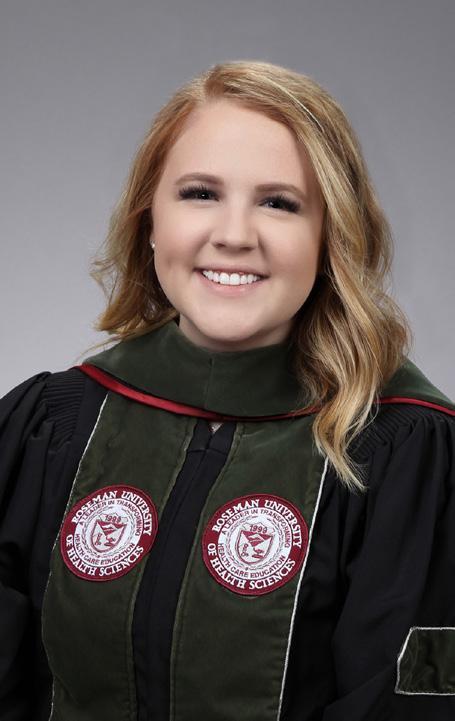
For Dr. Roberts, Roseman’s accelerated program allowed her to pursue her educational goals while raising two young children. She found that the program allowed her to complete her education in less time, allowing her to return to her family and career more quickly. She also connected with Roseman’s Six-Point Mastery Learning Model®. "The block system really resonated with me—it enables an in-depth focus on one subject at a time, which I found to be a highly effective way to learn.”
Dr. Roberts discovered pediatric pharmacy during her Neonatal Intensive Care Unit (NICU) rotation in the longitudinal Advanced Pharmacy Practice Experiences (APPE) program at Mountain View Hospital. She initially thought she wanted to pursue geriatric pharmacy or retail, but the rotation introduced her to neonatal medicine and clinical pharmacy in general, which sparked an interest in pediatrics. “The complexity and challenges of working with pediatric patients really resonated with me, and I found a true passion for the field. Since then, I have shifted my focus to pediatric oncology/hematology, but it was that NICU experience that first opened my eyes to the possibilities in pediatric pharmacy.”
Dr. Roberts completed her pediatric PGY-1 residency at Cardinal Glennon Children’s Hospital in St. Louis, MO. During residency, she realized her passion was in pediatric hematology/oncology. She did two rotations in this area, and a longitudinal clinic, which solidified her interest.
“Beyond the hematology/oncology rotations, I also got some great experience in a longitudinal Warfarin clinic and had the chance to present a Continuing Education session on pulmonary hypertension pharmacotherapy,” said Dr. Roberts. “I also was able to present my research on enhancing the Pediatric Intensive Care Unit (PICU) sedation weaning protocol. Overall, the residency really helped me build my confidence in pediatric medicine.”
This specialty allows Dr. Roberts to provide continuity of care by working with her patients at a deeper level and, at times, through long periods of therapy.
Are you interested in a career in Pediatric Pharmacy?
Email pharmacyadmissions@roseman.edu for more information.
A day in the life of Dr. Roberts in the children’s hospital, where she serves as the pharmacist for both the inpatient unit and the outpatient oncology/hematology clinic, includes providing guidance on supplements, medication changes, or helping patients having trouble accessing their medications. She will also recommend reducing pill burden, adjusting doses, and adding appropriate therapies when necessary. Knowing her patients well and tailoring their therapy to meet their needs is most impactful. She feels she makes the biggest difference by building personal relationships with them and being there for their medicationrelated concerns.
Like Dr. Ross’ experience, Dr. Roberts agrees that the interprofessionalism at the Saint Francis Children’s Hospital is exceptional, ensuring patients are cared for from all angles— medically, socially, and emotionally. “This teamwork helps provide the most comprehensive care, and I’ve seen firsthand how it positively impacts patient outcomes.”
Dr. Roberts’ advice for those considering a career in Pharmacy: keep an open mind. Due to the early experiential elements of Roseman’s program, rotations in her third year in the PharmD program, and residency, she was presented with numerous diverse experiences that helped her identify where she wanted to deepen her skills. "By keeping an open mind, I discovered a passion for pediatric hematology/oncology, a field I never expected to find. It turned out to be exactly where I needed to be."
Dr. Ross advises that it is okay not to know everything. “The best advice I give to students and residents is to be comfortable with knowing what you don’t know. In healthcare, new studies, guidelines, and medications are constantly emerging, and it’s our responsibility to stay informed for the sake of our patients. No matter how long you've been in the field, you’ll encounter questions you don’t have an immediate answer for—and that’s okay!”
In 2024, 81.5 percent of Roseman’s PharmD graduates pursuing residency matched. This impressive number reflects the exceptional preparation Roseman students receive during their three-year program, enabling them to be competitive candidates for residency programs. It also speaks to Roseman Pharmacy graduates' diverse interests and vast desires to serve the many rich practice areas of Pharmacy. These residencies span a variety of specialties and place graduates in many kinds of practice settings. The world of Pharmacy is vast and deep and Roseman’s graduates are exploring and serving in many diverse capacities.
For Dr. Ross and Dr. Roberts, and the many Roseman graduates who have gone on to Pediatric Pharmacy, the patients they serve undoubtedly administer to them a daily dose of kindness and optimism. This provides an unbreakable cycle of support and is a testament to the fact that inspiration can flow in both directions. For Drs. Ross and Roberts, their deep connection to their patients is evidence that they are ideally suited to serving our community's most fragile and vulnerable patients.





By: Jason Roth


In a bold departure from traditional medical education, Roseman University College of Medicine is pioneering a revolutionary approach to training future physicians through its innovative GENESIS program. Following the granting of preliminary accreditation in February by the Liaison Committee on Medical Education (LCME), the College of Medicine is actively recruiting its inaugural class of 60 students set to begin in July, with GENESIS serving as a cornerstone of their educational journey.
GENESIS represents a fundamental shift in how medical students learn about healthcare delivery by immersing them directly in underserved communities throughout their education. Officially launched in March 2022 on the steps of Las Vegas City Hall, the program has already made significant strides in community engagement and healthcare delivery.
Unlike conventional medical programs that might offer occasional community clinic experiences or optional social medicine electives, GENESIS makes community engagement mandatory and longitudinal.
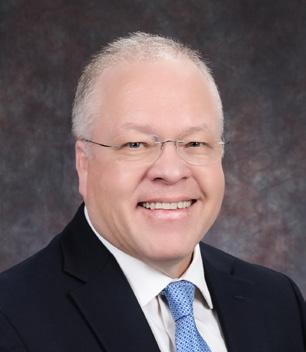
"Roseman GENESIS affords all undergraduate medical students with a longitudinal relationship with members of medically underserved communities," explains Dr. Steven Embley. Chair of the Department of Clinical Sciences. "GENESIS is a required element of the curriculum that reinforces classroom topics such as clinical skills, medical ethics, social determinants of health, and health systems science." This approach acknowledges a critical reality often overlooked in traditional medical training: that 80-90 percent of disease outcomes stem from social determinants of health rather than purely biological factors.



"There is a consensus in the literature that a larger percentage of healthcare outcomes is attributable to non-biologic causes such as the social determinants of health," notes Embley. "Despite the overwhelming evidence of this phenomenon, medical education has been slow to adapt its curricula to reflect this reality. Recent changes in accreditation standards now include requirements that topics on the social determinants of health be taught to medical students, however, guidance on the structure or format have been varied across medical schools."
What makes GENESIS truly distinctive is its household-centered methodology. Students are assigned to medically underserved households with whom they'll work throughout their education, helping to improve both health and social conditions. They're supported by GENESIS community health workers employed by the College of Medicine who help household members navigate appropriate health and social services.
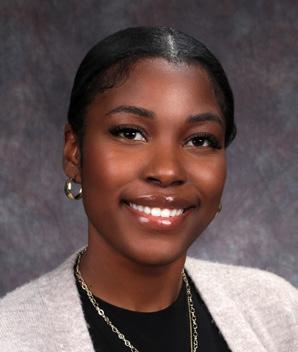
"Community health workers are charged with recruiting, screening and enrolling households into the program," explains Pearl Paulo, Senior Program Manager. "These community health workers educate household members about the experience of working with our medical students and their faculty supervisors. If a household agrees to be assigned to a medical student, then the community health worker introduces the household members to their assigned medical student and faculty supervisor."


The program meticulously tracks nine domains of social determinants of health risk: income, nutrition, housing, technology, transportation, employment, and life skills/education, along with physical and mental quality of life measures.




While GENESIS doesn't aim to dictate medical specialty choices, it does aspire to fundamentally shape how Roseman graduates approach medicine regardless of specialty.
"It is our hope that the lasting impact of GENESIS on Roseman College of Medicine graduates is: 1) the importance of being a highly competent physician that communities can rely upon, 2) part of being a highly competent physician is the number of variables (social and medical) you leverage in making a diagnosis and treatment plan, 3) an understanding of the micro and macro policies that influence patient decision-making," explains Esposito.
"It may have no effect on specialty selection, and that is fine," Esposito adds. "Underserved communities need compassionate, ethically trained surgeons, ophthalmologists, dermatologists, psychiatrists and all other specialties. The goal is not necessarily to dictate specialty choice, but instead to ensure our students arrive to their residency as a highly competent physician as defined by the Roseman standard."


GENESIS-trained physicians will gain "a comprehensive understanding of the context and conditions from which patients originate. This skill is derived from firsthand experience in communities and households, rather than through simulations, cases or windshield views of areas in need."
As Roseman University College of Medicine welcomes its first class of medical students, GENESIS is poised for continued growth and innovation. Future plans include expanding into Nevada's rural and frontier communities and creating more pathways for students from other health professions to participate.


Looking to the future, Brewster projects: "We fully expect to have some version of GENESIS offered to several of Nevada's rural and frontier communities. This would include the formation of statewide strategic partnerships aimed at ensuring that Nevada has a durable means of training a growing interprofessional healthcare workforce prepared to deliver high-quality healthcare to all its residents."
The scalability of the program is already evident: "GENESIS is itself a replication of work pioneered in South Florida and therefore the evidence of its scalability already exists. The underlining approach, household-centered care, is a flexible approach able to accommodate a broadly accepted philosophy assigned to community health interventions - if you have seen one community, then you have seen one community. No two communities are the same and therefore strategies must be flexible enough to adapt to changing community contexts and conditions," said Brewster.


"Future cohorts of students will be welcomed into an everincreasing environment of innovation that will ultimately spur student-driven ideas of how GENESIS can elevate its learning opportunities, scientific discovery and community benefit," Brewster envisions. "This process will inevitably create more pathways for students from other professions (e.g., Pharmacy, Dental) and potentially other universities to participate in GENESIS."

With the LCME's stamp of approval and recruitment underway for the inaugural class, Roseman University College of Medicine stands ready to transform medical education through its commitment to community engagement and addressing the social determinants that profoundly impact health outcomes.
"Implementing audacious approaches to address long-standing profession and societal challenges requires an unyielding focus on the desired outcome, while resisting the pressure to react to momentary setbacks or 'pre-successes,'" reflects Brewster. "GENESIS is fortunate to be part of a College of Medicine that is supremely focused on its mission and to be part of Roseman University, with a legacy of audacious accomplishments."



By: Jason Roth


Roseman University College of Medicine’s EMPOWERED program, founded in 2018 in Las Vegas, has successfully expanded its reach beyond Nevada to Weber and Davis counties in Utah in partnership with Intermountain Health’s Peripartum Addiction Treatment and Healing (PATH) program. This strategic expansion brings Roseman University’s expertise to communities in Utah, supporting pregnant and postpartum individuals who have used opioids and stimulants.
“This collaboration addresses a critical need in Utah, where druginduced deaths are the leading cause of pregnancy-associated death, with most cases occurring during the postpartum period,” said EMPOWERED Executive Director and Co-Founder Dr. Andria Peterson. “At EMPOWERED, we’re committed to offering pregnant and postpartum individuals non-judgmental support to guide them in their recovery so they can achieve resiliency and thrive as caregivers for their babies.”
EMPOWERED helps clients navigate the challenges of recovery, addressing their greatest needs and helping build a foundation for successful recovery. A cornerstone of the program’s approach is peer support, which connects clients with peer recovery support specialists who have had similar experiences, reducing feelings of isolation and providing encouragement.
To enhance care for mothers in recovery, EMPOWERED collaborates closely with Intermountain Health’s PATH program. Both organizations recognize that pregnant individuals with substance use disorder face unique challenges, including complications like Neonatal Abstinence Syndrome (NAS) or Neonatal Opioid Withdrawal Syndrome (NOWS) in infants.
The PATH program offers virtual visits with obstetricians trained in addiction medicine, who create tailored care plans for participants. Their services include neonatal consultations, counseling, and medication for opioid use disorder.
“Our partnership with the PATH program creates a seamless support system,” notes Dr. Peterson. “While PATH addresses the critical medical needs during pregnancy, our EMPOWERED program extends that support with resources and community connections that help build foundations for long-term recovery and successful parenting.”
A typical journey through the complementary programs might begin with PATH for medical treatment during pregnancy. From there, EMPOWERED provides ongoing postpartum support, peer counseling, and help obtaining baby supplies, housing, employment, and more. This continuum of care supports both mother and baby through recovery and into healthy family life.
“The peer support component of Roseman’s EMPOWERED program is particularly valuable,” explains Dr. Peterson. “These connections build resilience and confidence as our clients navigate recovery and motherhood simultaneously.”
The expansion from Nevada into Utah’s Weber and Davis counties brings EMPOWERED’s evidence-based support programs to communities where they’re needed most, while also strengthening Roseman’s commitment to addressing critical health needs in Utah communities. By combining Roseman’s expertise in community health resources with Intermountain Health’s medical capabilities, EMPOWERED is creating comprehensive solutions for vulnerable populations.

For Tyler, the vast opportunities within the field, especially his dream of becoming a flight nurse, made nursing the perfect fit. The idea of providing critical care in highstakes situations while also getting an adrenaline rush combined his passions in the best way possible.
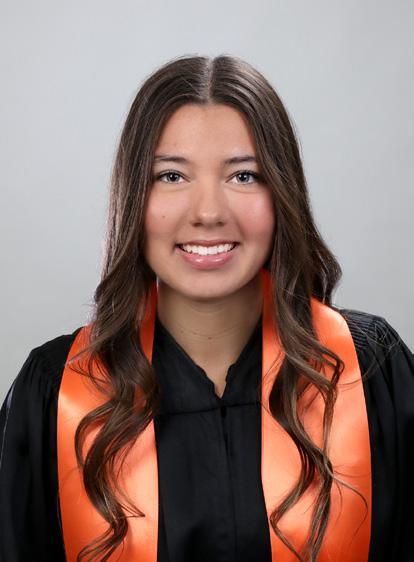
For Mikaela, the close patient connections that nursing fosters was the biggest draw. Assistant Professor Dr. Beth Green's words resonated deeply: “It is an honor to do something for someone that they cannot do for themselves.” That honor, combined with a fascination for the resilience of the human body, solidified her calling she believes the Lord has given her to serve others by becoming a nurse.
As they navigated their nursing education together, they learned not only from their professors but from each other. Tyler is the kind of guy that has a “get it done” personality but will bring you right along with him to do it together. Having a partner who truly understands the challenges and triumphs of this journey made all the difference. They were also inspired by their mentors, like Dr. Green and Associate Dean for Academic & Student Affairs Dr. Jamie York, who demonstrated what it means to be compassionate, skilled, and dedicated nurses. Dr. Green taught them to never lose their smile and to always remember their “why” for what they do.
Roseman gave them the foundation they needed to succeed, helping them achieve their dream in an accelerated timeframe. Tyler never imagined graduating with a BSN at 21 years old, but Roseman’s rigorous yet supportive environment made it possible. An ABSN in 16 months without skimping on important material or clinical experience, and allowing students to graduate with a 4.0 is a great accomplishment for which Roseman should be proud. Mikaela found that the high standards and professionalism instilled in them at Roseman set them up for success far beyond academics. The faculty at the South Jordan Campus poured countless hours into making sure they were ready—not just to pass exams, but to excel in their careers.
Some of their best memories at Roseman include volunteering at the Salt Lake City Marathon, supporting runners at a water station, and making a positive impact in the community. Tyler will never forget the days when he and his friend Justin would bring their snowboard gear to class, waiting for the early lab dismissals so they could head straight to the mountains. These moments, big and small, shaped their experience and cemented their love for this school.

Tyler and Mikaela have returned to their hometowns in Oregon and begun their careers as critical care nurses. They are now looking forward to the next chapter of their lives—getting married in May. Roseman wasn’t just a steppingstone in their education; it was the place where they grew together, challenged each other, and built the foundation for their future. Their love story is intertwined with their journey at Roseman, and they couldn’t be more grateful for everything Roseman University has given them.
